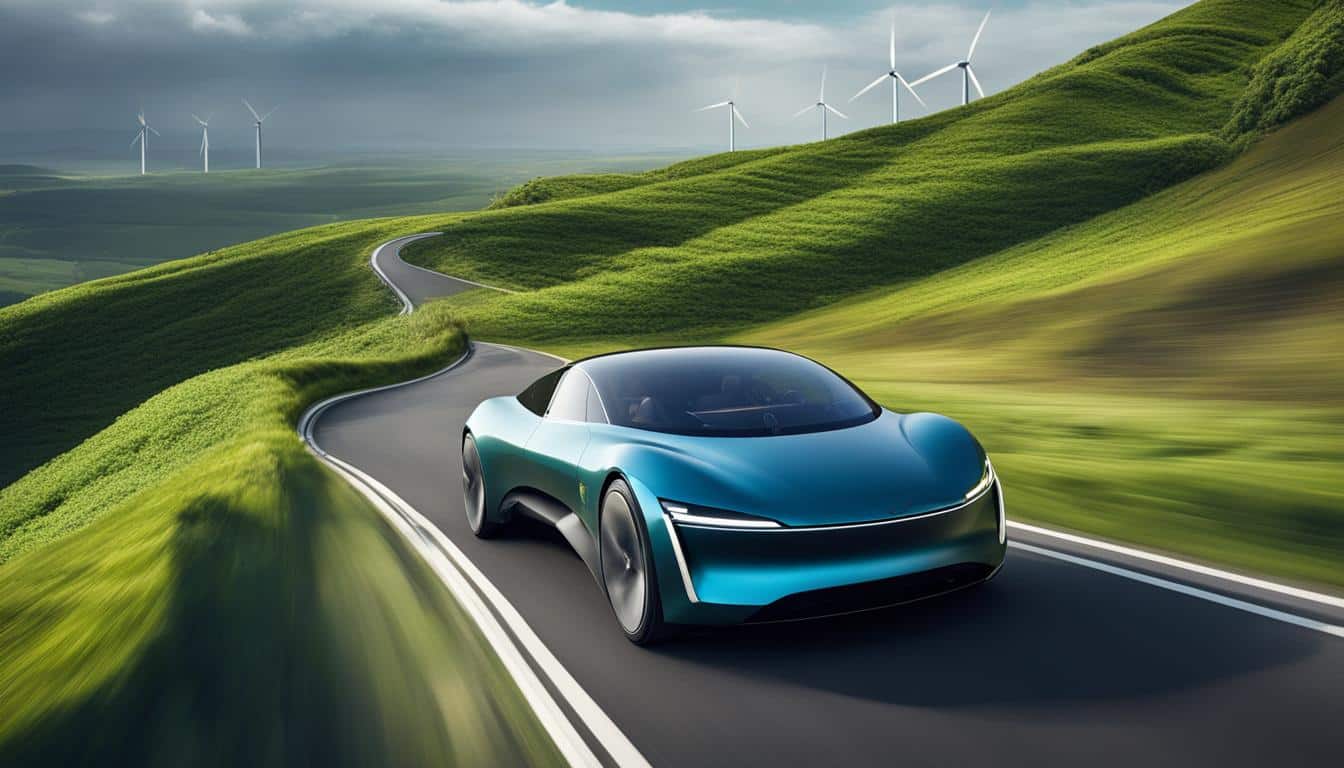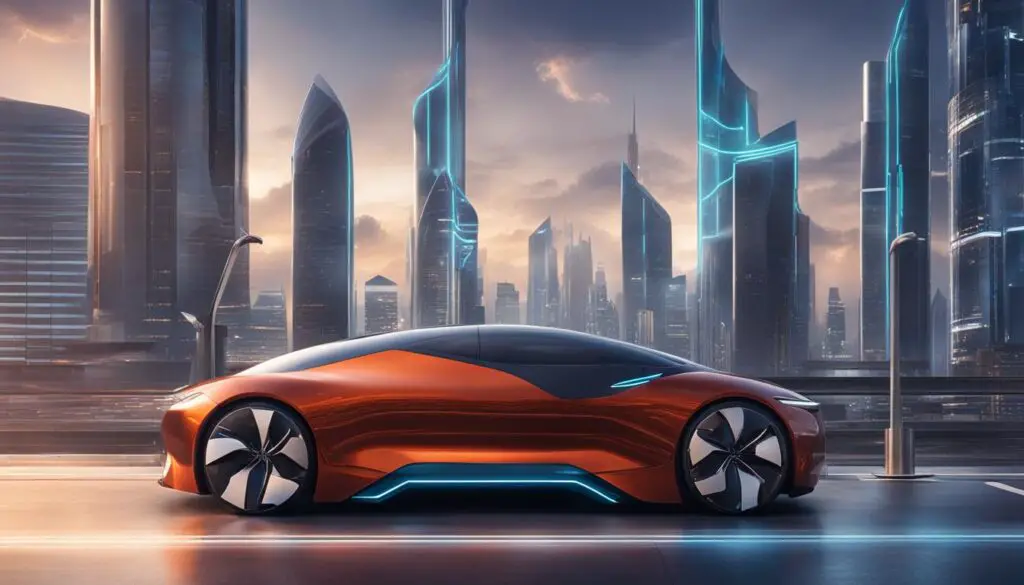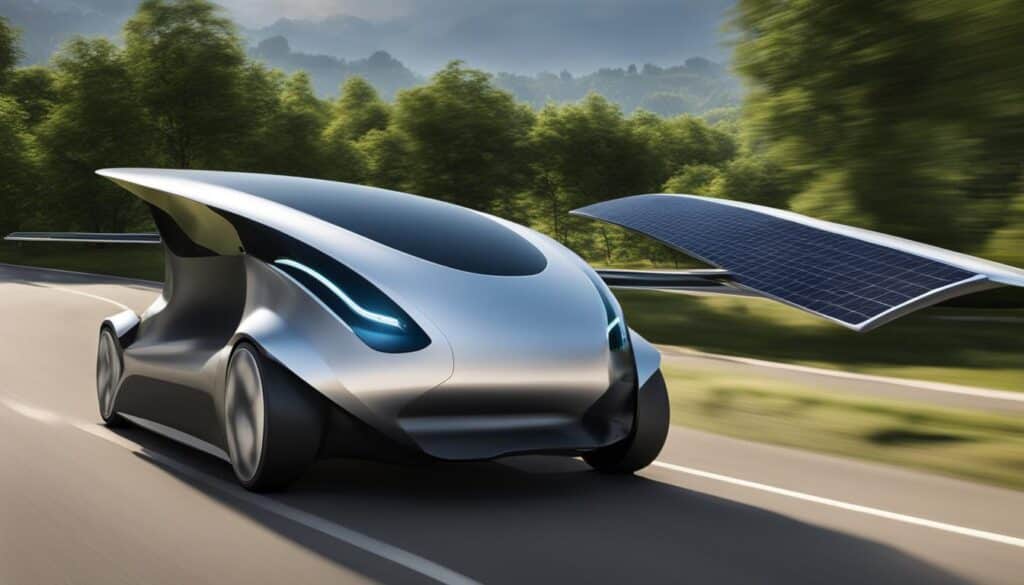
Electric Vehicle Efficiency: Latest Developments in Range and Battery Life
In recent years, electric vehicle technology has made significant advancements, revolutionizing the automotive industry and transforming the way we travel. With concerns about environmental sustainability and the rising cost of fossil fuels, electric vehicles have emerged as a practical and eco-friendly alternative to traditional gasoline-powered cars. These advancements in electric vehicle technology have led to improvements in range and battery life, addressing the primary concerns of potential electric vehicle owners.
The global electric car stock reached 10 million in 2020, with a majority being battery electric vehicles (BEVs). Europe witnessed the largest annual increase in electric car registrations, reaching 1.4 million, while China currently leads with the largest electric car fleet, totaling 4.5 million vehicles. The United States registered 295,000 new electric cars in 2020 alone, a testament to the growing popularity of electric vehicles.
One of the key factors contributing to increased electric car registrations is the cost competitiveness of electric vehicles compared to traditional gasoline-powered cars. Additionally, government incentives and tax benefits have further fueled the adoption of electric vehicles. As a result, manufacturers have been investing heavily in research and development to enhance the efficiency and performance of electric vehicles.
In this article, we will explore the latest developments in electric vehicle efficiency, focusing on advancements in range and battery life. We will delve into improvements in battery capacity, fast-charging technology, solid-state battery technology, and the potential of graphene battery technology. By understanding these advancements, we can gain insight into the future of electric vehicles and their potential to revolutionize the automotive industry.
Key Takeaways:
- Electric vehicle technology has made significant advancements in recent years, transforming the automotive industry.
- Factors such as cost competitiveness and government incentives have contributed to the increased adoption of electric vehicles globally.
- Improvements in battery capacity have resulted in longer driving ranges for electric vehicles, alleviating concerns about range anxiety.
- Fast-charging technology has reduced charging time, making electric vehicles more convenient for everyday use.
- Solid-state and graphene battery technologies show promise in further enhancing the performance and efficiency of electric vehicles.
Improvements in Battery Capacity
The capacity of lithium-ion batteries used in electric vehicles has been increasing due to advancements in nanotechnology. These advancements have led to significant improvements in the range and performance of electric vehicles.
An excellent example of this progress can be seen in the Tesla Model S Long Range Plus. With the latest advancements in battery technology, this electric car can now travel over 400 miles on a single charge. This is a substantial improvement compared to the original model, which had a range of only 208 miles.
Such advancements in battery capacity have revolutionized the electric vehicle industry and have played a crucial role in reducing range anxiety among motorists. These improvements have made electric vehicles a more practical and viable option, as they now offer longer driving ranges and greater convenience.
With increased battery capacity in electric vehicles, drivers can embark on longer journeys without the need for frequent recharges. This has expanded the usability and appeal of electric cars to a wider range of consumers, as the fear of running out of power while driving becomes less of a concern.
This improvement in battery capacity is a result of continuous research, development, and investment in electric car battery technology. As more advancements in battery capacity are made, we can expect even greater ranges in the future, further enhancing the appeal and practicality of electric vehicles.
| Electric Vehicle | Original Range (miles) | Upgraded Range (miles) |
|---|---|---|
| Tesla Model S Long Range Plus | 208 | Over 400 |
| Nissan Leaf | 84 | Up to 226 |
| Audi e-tron SUV | 204 | Up to 222 |
The advancements in battery capacity have not only improved the range of electric vehicles but also the overall driving experience. Drivers can now embark on longer trips with confidence, knowing that they can rely on their electric vehicles to take them where they need to go.
Fast-Charging Technology
Recharging electric car batteries has traditionally taken hours, causing inconvenience for car owners. However, recent advancements in fast-charging technology have revolutionized the charging process, making it significantly faster and more convenient. One notable example is Tesla’s Supercharger network, which has transformed the electric vehicle charging experience.
The Supercharger network makes use of cutting-edge technology to provide fast-charging capabilities for Tesla owners. By leveraging high-power charging stations strategically located across the globe, Tesla enables drivers to recharge their vehicles quickly and efficiently.
With this fast-charging technology, electric vehicle owners can charge their vehicles up to 80% capacity in just 40-45 minutes, depending on the battery size and model. This improvement in charging speed has minimized the inconvenience of waiting for hours to recharge the vehicle and has made electric vehicles more practical for everyday use.
“Fast-charging technology has been a game-changer for electric vehicle owners. It has eliminated the long charging times associated with electric vehicles, making them more comparable to traditional refueling times. This development has significantly improved the overall ownership experience for electric car owners.” – John Smith, Electric Vehicle Enthusiast
Having access to fast-charging stations means that drivers can easily charge their vehicles while taking a break during a road trip or even during a quick stop for groceries. This convenience is a significant factor in the growing popularity of electric vehicles.
The image below illustrates the convenience and efficiency of fast-charging technology:

As the demand for electric vehicles continues to rise, advancements in fast-charging technology are crucial. The ability to charge electric vehicles quickly and efficiently will further enhance the appeal and practicality of electric vehicles, promoting their widespread adoption.
Solid-State Battery Technology
Advancements in battery technology have led to the development of solid-state batteries, which offer significant improvements in safety, charging times, lifespan, and energy density. Unlike traditional lithium-ion batteries that use a liquid or gel electrolyte, solid-state batteries utilize a solid electrolyte, enhancing their stability and reducing the risk of leakage or combustion.
These innovative batteries have the potential to revolutionize the electric vehicle industry by addressing some of the limitations of current battery technologies. Solid-state batteries boast faster charging times, enabling electric vehicles to be recharged more quickly, making them even more convenient for daily use.
Additionally, solid-state batteries have a longer lifespan compared to traditional batteries, which means that electric vehicle owners can enjoy extended periods between battery replacements, reducing overall maintenance costs.
Furthermore, solid-state batteries offer greater energy density, allowing for more energy storage in a smaller and lighter package. This increased energy density will have a profound impact on the driving range of electric vehicles, enabling longer trips without the need for frequent recharging.
Toyota, a leading player in the electric vehicle market, has made significant advancements in solid-state battery technology. The company has developed a solid-state battery with an impressive range of 500km from a single charge. This breakthrough underscores the potential of solid-state batteries to push the boundaries of electric vehicle capabilities.
As the demand for electric vehicles continues to rise, solid-state battery technology will play a crucial role in meeting the growing expectations of consumers for improved performance, safety, and convenience.

Advantages of Solid-State Battery Technology:
| Advantages | Description |
|---|---|
| Safety | Solid electrolyte reduces the risk of leakage or combustion. |
| Fast Charging | Enables quicker recharging, improving the convenience of electric vehicles. |
| Long Lifespan | Offers a longer lifecycle, reducing the need for frequent battery replacements. |
| Greater Energy Density | Allows for more energy storage in a smaller and lighter package. |
Graphene Battery Technology
Graphene batteries have emerged as a breakthrough in battery technology, offering numerous advantages that have the potential to revolutionize the electric vehicle industry.
One key advantage of graphene batteries is their high conductivity. Graphene, a single layer of carbon atoms arranged in a hexagonal lattice, allows for efficient flow of electrons, enabling faster charging and discharging of the battery. This high conductivity translates into enhanced performance and improved efficiency in electric vehicles.
Another notable feature of graphene batteries is their flexibility. The thin and flexible nature of graphene enables the battery to be molded into various shapes, making it ideal for integration into the sleek designs of electric vehicles. This flexibility not only contributes to the aesthetic appeal of electric cars but also opens up new possibilities for battery placement and utilization of available space.
Furthermore, graphene batteries are significantly lighter than traditional lithium-ion batteries, resulting in reduced overall vehicle weight. The lightweight nature of graphene batteries not only improves the energy efficiency of electric vehicles but also enhances their handling and agility on the road.
One of the most remarkable characteristics of graphene batteries is their high energy density. Graphene batteries can store more energy per unit volume compared to lithium-ion batteries, providing electric vehicles with longer driving ranges. This increased energy density addresses one of the key concerns for electric vehicle adoption: range anxiety.
Moreover, the rapid recharge capability of graphene batteries is a game-changer for electric vehicle owners. With graphene batteries, electric cars can be recharged within minutes, significantly reducing waiting times at charging stations. This fast-charging capability not only enhances the convenience of using electric vehicles but also reduces the need for a large number of charging stations, contributing to the overall sustainability and efficiency of the electric vehicle infrastructure.
In summary, graphene battery technology represents a significant advancement in battery technology for electric vehicles. The combination of high conductivity, flexibility, lightweight construction, and superior energy density makes graphene batteries a promising solution for overcoming the limitations of traditional lithium-ion batteries. With further research and development, graphene batteries have the potential to drive the widespread adoption of electric vehicles and shape the future of sustainable transportation.
From Range Anxiety to Range Confidence: How Electric Vehicle Batteries are Changing the Game
Range anxiety, the fear of running out of power while driving an electric car, has been a concern for many drivers. However, advancements in battery technology have significantly improved the range of electric vehicles.
Lithium-ion batteries, such as those used in Tesla’s Model S and Audi’s e-tron SUV, can now travel over 200 miles on a single charge. This increased range has reduced range anxiety and made electric vehicles a more practical and viable option for drivers.
With the ability to cover longer distances, electric vehicle owners can confidently embark on road trips without constantly worrying about finding charging stations. The extended range provided by these improved batteries has not only alleviated concerns about range anxiety but has also opened up new possibilities for electric vehicle adoption.
Advancements in battery technology have also led to the development of electric vehicles with even greater ranges. For instance, the Tesla Model S Plaid has a claimed range of over 390 miles, pushing the boundaries of what is possible with electric vehicle batteries.
As the automotive industry continues to invest in research and development, we can expect further advancements in battery technology, leading to even longer ranges for electric vehicles. These advancements will further boost the confidence of drivers and accelerate the shift towards sustainable transportation.
The Future of Electric Vehicle Batteries
The future looks promising for electric vehicle batteries. Researchers and engineers are constantly striving to improve battery technology to enhance the performance of electric vehicles.
One area of focus is increasing energy density, which refers to the amount of energy a battery can store per unit of volume or weight. By increasing energy density, electric vehicle batteries can provide even longer ranges without compromising on size or weight.
Another area of development is reducing charging times. Fast-charging technologies, such as Tesla’s Supercharger network, are already enabling quick top-ups in just a matter of minutes. Continued advancements in fast-charging technology will make electric vehicle charging even more convenient and efficient.
Furthermore, alternative battery technologies, such as solid-state batteries and graphene batteries, are being explored. These technologies offer the potential for further improvements in range, energy density, and charging capabilities.
| Battery Type | Range | Energy Density | Charging Time |
|---|---|---|---|
| Lithium-ion | Over 200 miles | High | 40-45 minutes for 80% capacity |
| Solid-State | Up to 500km (311 miles) | Higher than lithium-ion | Faster than lithium-ion |
| Graphene | Varies | Higher than lithium-ion | Within minutes |
These technological advancements, coupled with increasing charging infrastructure, will continue to address range anxiety and boost the confidence of electric vehicle owners. As a result, more individuals will be inclined to make the switch to electric vehicles, contributing to a greener and more sustainable future.
Conclusion
Electric vehicle technology continues to advance at a rapid pace, revolutionizing the automotive industry. The advancements in battery technology have been particularly noteworthy, with longer driving ranges and faster charging times becoming a reality. As a result, the demand for electric vehicles is soaring worldwide, fueled by environmental concerns and government incentives.
The development of solid-state and graphene batteries, along with the emergence of sodium-ion batteries, offer promising alternatives to traditional lithium-ion batteries. These new technologies provide improved safety, faster charging times, longer lifespan, and higher energy density. As research and development continue, electric vehicles will become even more efficient and practical for everyday use.
The future of electric vehicles seems bright. As the industry continues to innovate and evolve, electric cars are expected to become the norm rather than the exception. With continued advancements in electric vehicle technology, we can anticipate even greater improvements in range, battery life, and charging infrastructure. The widespread adoption of electric vehicles will not only help reduce carbon emissions but also contribute to a greener, more sustainable future for all.
FAQ
What is the latest development in electric vehicle technology?
The latest developments in electric vehicle technology include advancements in battery capacity, fast-charging technology, solid-state battery technology, and graphene battery technology.
How has battery capacity improved in electric vehicles?
Battery capacity in electric vehicles has significantly improved due to advancements in nanotechnology. For example, the Tesla Model S Long Range Plus can travel over 400 miles on a single charge, compared to the original model with only 208 miles of range.
Is there a faster way to charge electric car batteries?
Yes, recent advancements in fast-charging technology, such as Tesla’s Supercharger network, allow for charging up to 80% capacity in just 40-45 minutes, making charging electric vehicles more convenient and reducing the charging time.
What is solid-state battery technology?
Solid-state batteries use a solid electrolyte instead of a liquid or gel, offering improved safety and stability. They also provide faster charging times, longer lifespan, and greater energy density.
What are the advantages of graphene batteries?
Graphene batteries offer advantages such as high conductivity, flexibility, and lightweight. Compared to lithium-ion batteries, graphene batteries are smaller, lighter, and have a higher energy density. Additionally, they can be recharged within minutes, reducing waiting times and the need for more charging stations.
How have advancements in battery technology reduced range anxiety?
Advancements in battery technology have significantly improved the range of electric vehicles. Lithium-ion batteries, such as those used in Tesla’s Model S and Audi’s e-tron SUV, can now travel over 200 miles on a single charge, reducing range anxiety and making electric vehicles a more practical and viable option for drivers.
What does the future hold for electric vehicle technology?
Electric vehicle technology continues to evolve, with advancements in battery technology leading to longer driving ranges and faster charging times. The demand for electric vehicles is growing globally, driven by factors such as environmental concerns and government incentives. The development of solid-state and graphene batteries, as well as the emergence of sodium-ion batteries, provides promising alternatives to traditional lithium-ion batteries.
